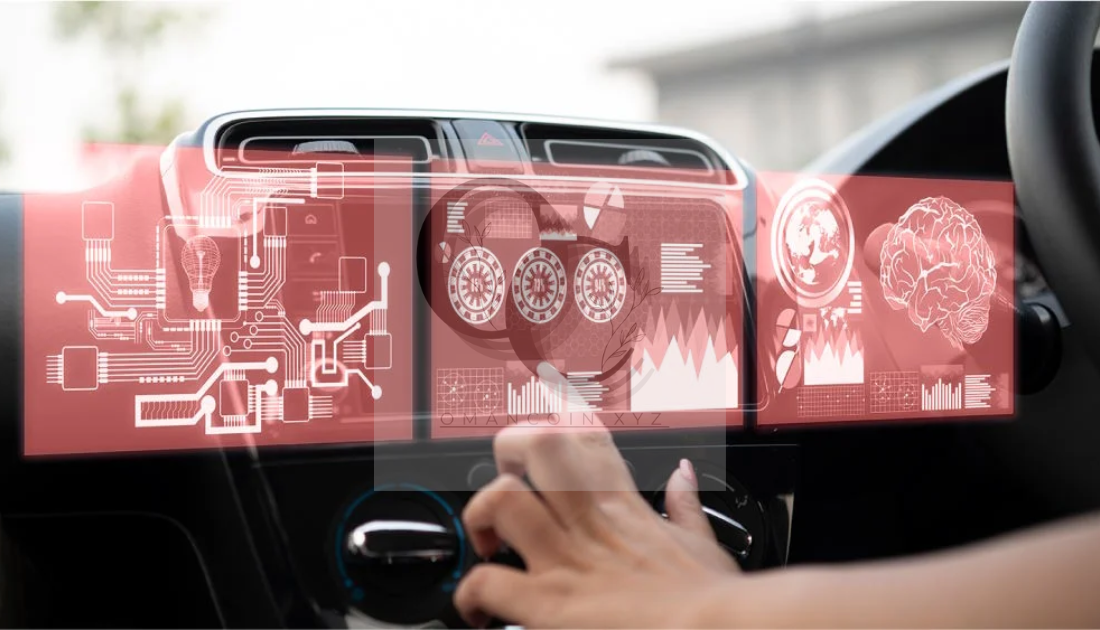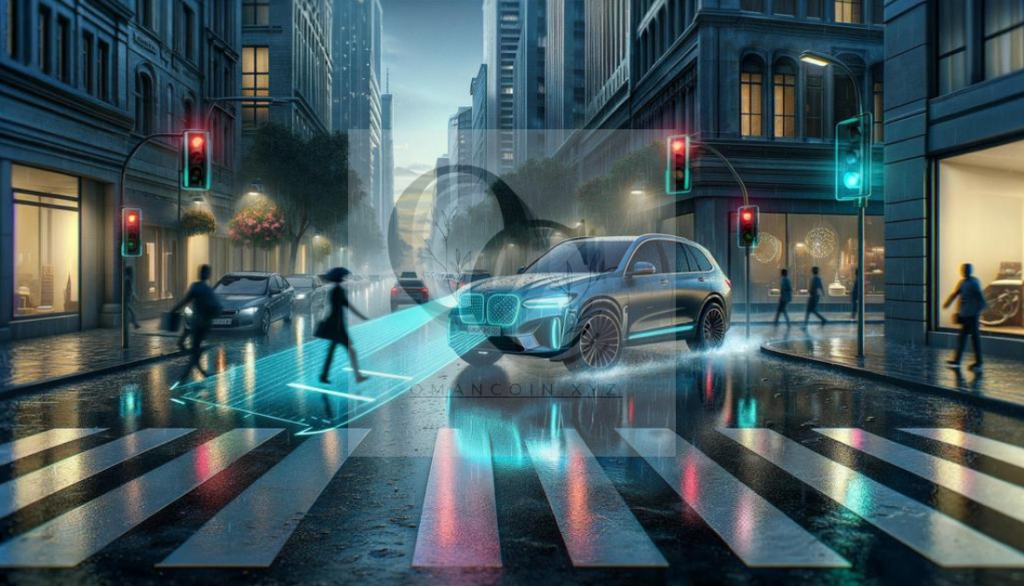Blog
Advanced Smart Sensors for Vehicles: Revolutionizing Road Safety and Driving Experience
Modern vehicles are increasingly equipped with advanced smart sensors that enhance safety, improve performance, and provide drivers with valuable real-time information. These technologies are transforming the automotive industry, making roads safer and driving more convenient. Understanding how advanced smart sensors for vehicles work, their benefits, and their applications can help you appreciate their value in today’s automobiles.
What Are Advanced Smart Sensors for Vehicles?
Smart sensors are high-tech devices integrated into a vehicle’s system to monitor, detect, and respond to various conditions. These sensors collect data from the vehicle and its surroundings, enabling automated systems to make informed decisions. From collision avoidance to autonomous driving, advanced sensors play a crucial role in improving safety and efficiency.
- How They Work
Smart sensors utilize technologies like radar, LiDAR, cameras, and ultrasonic waves to gather data. This information is processed by the car’s onboard computer, triggering appropriate responses such as braking, steering adjustments, or driver alerts. - Why They Matter
These sensors enhance situational awareness, reduce human error, and enable semi-autonomous or fully autonomous driving features. They are essential for creating a safer driving environment.
Key Types of Advanced Smart Sensors for Vehicles
Each type of smart sensor serves a unique purpose, contributing to various aspects of vehicle performance and safety. Understanding these sensors helps highlight their importance in modern cars.
- Radar Sensors
Radar sensors measure the distance and speed of objects around the vehicle. They are commonly used in adaptive cruise control and collision avoidance systems. - LiDAR Sensors
LiDAR uses laser beams to create detailed 3D maps of the car’s surroundings. These sensors are critical for autonomous driving, offering precise object detection and spatial awareness. - Camera Sensors
Cameras capture visual information for features like lane-keeping assist, pedestrian detection, and traffic sign recognition. High-resolution cameras ensure accurate analysis of road conditions. - Ultrasonic Sensors
Ultrasonic sensors detect objects at close range, making them ideal for parking assistance and low-speed maneuvers. - Inertial Sensors
Inertial sensors measure acceleration, tilt, and rotational speed, helping systems like electronic stability control maintain vehicle balance. - Tire Pressure Monitoring Sensors
These sensors monitor tire pressure in real time, alerting drivers to potential issues that could affect safety or fuel efficiency. - Environmental Sensors
Environmental sensors detect rain, fog, or temperature changes. This data helps adjust systems like windshield wipers, climate control, and traction management.
Benefits of Advanced Smart Sensors for Vehicles
Smart sensors offer numerous advantages, making them a critical component of modern automotive design. Their benefits extend to drivers, passengers, and even pedestrians.
- Improved Safety
By detecting potential hazards and providing timely alerts, smart sensors reduce the risk of accidents. Features like automatic emergency braking and blind-spot monitoring save lives. - Enhanced Driving Convenience
Advanced sensors simplify driving tasks, such as parking and maintaining a safe following distance. This makes daily commutes more comfortable and stress-free. - Fuel Efficiency and Maintenance
Sensors that monitor tire pressure, engine performance, and aerodynamics optimize fuel consumption and reduce wear and tear on the vehicle. - Support for Autonomous Driving
Smart sensors are the backbone of self-driving technology. They enable vehicles to navigate complex environments with minimal human intervention. - Environmental Benefits
By improving fuel efficiency and enabling eco-driving features, smart sensors contribute to reduced emissions and a greener planet.
Applications of Advanced Smart Sensors in Vehicles
Smart sensors are used in various applications, making cars smarter, safer, and more efficient. Their versatility ensures they cater to a wide range of driving needs.
- Driver Assistance Systems
Advanced driver assistance systems (ADAS) rely on sensors for functions like adaptive cruise control, lane departure warnings, and traffic sign recognition. - Collision Avoidance
Sensors detect potential collisions and activate safety measures, such as automatic braking or evasive steering, to prevent accidents. - Parking Assistance
Ultrasonic and camera sensors simplify parking by detecting obstacles and guiding the driver into tight spaces. - Traffic Management
Smart sensors communicate with infrastructure and other vehicles to optimize traffic flow and reduce congestion. - Night Vision
Infrared sensors improve visibility in low-light conditions, helping drivers detect pedestrians or animals on the road. - Autonomous Navigation
LiDAR, radar, and camera sensors work together to enable self-driving vehicles to navigate safely and efficiently.

Tips for Maintaining Advanced Smart Sensors
To ensure your vehicle’s sensors remain functional and accurate, regular maintenance is essential. Proper care enhances their lifespan and performance.
- Keep Sensors Clean
Dirt, dust, and debris can interfere with sensor accuracy. Clean the sensors regularly with a soft cloth and appropriate cleaning solutions. - Inspect for Damage
Check for cracks, scratches, or loose connections that could affect sensor functionality. Address any issues promptly. - Update Software
Many smart sensors rely on software for optimal performance. Keep your vehicle’s software updated to benefit from the latest features and improvements. - Avoid Obstructions
Ensure that sensors are not blocked by objects, such as bumper stickers or misplaced license plates. - Consult Professionals
If a sensor malfunctions, seek professional assistance for diagnosis and repair. Attempting DIY fixes may void warranties or cause further damage.
The Future of Advanced Smart Sensors for Vehicles
As technology evolves, smart sensors will become even more advanced, offering new capabilities and improving driving experiences. Several trends are shaping the future of automotive sensors.
- Increased Accuracy
Future sensors will provide more precise data, enabling vehicles to make better decisions in complex scenarios. - Integration with Smart Infrastructure
Sensors will communicate with smart city infrastructure, such as traffic lights and road signs, for seamless navigation and improved traffic flow. - Enhanced Safety Features
Next-generation sensors will include capabilities like predictive analytics and advanced pedestrian detection, further reducing accident risks. - Cost Efficiency
As technology matures, smart sensors are expected to become more affordable, making them accessible for a wider range of vehicles.
Common Misconceptions About Smart Sensors in Vehicles
Despite their benefits, there are misconceptions about smart sensors that can lead to unrealistic expectations. Clearing up these myths ensures a better understanding of their capabilities.
- Sensors Make Cars Fully Autonomous
While sensors are essential for autonomous driving, most vehicles equipped with smart sensors still require driver supervision. - They Don’t Need Maintenance
Regular maintenance is crucial for optimal sensor performance. Neglecting care can lead to reduced accuracy and functionality. - They’re Only for Luxury Cars
Advanced smart sensors are becoming standard in many mid-range and even entry-level vehicles, making them accessible to a broader audience. - Sensors Are 100% Reliable
While highly accurate, sensors can occasionally be affected by extreme weather conditions or physical damage.
Conclusion: The Essential Role of Advanced Smart Sensors for Vehicles
Advanced smart sensors for vehicles are revolutionizing the automotive industry, offering unmatched safety, convenience, and performance. By understanding their functions, benefits, and applications, drivers can fully appreciate the value they bring to modern cars. As technology continues to evolve, smart sensors will play an even greater role in shaping the future of transportation.
Investing in a vehicle with advanced sensors not only enhances your driving experience but also contributes to a safer and smarter road environment. Embrace the future of automotive innovation and enjoy the benefits of this cutting-edge technology.

